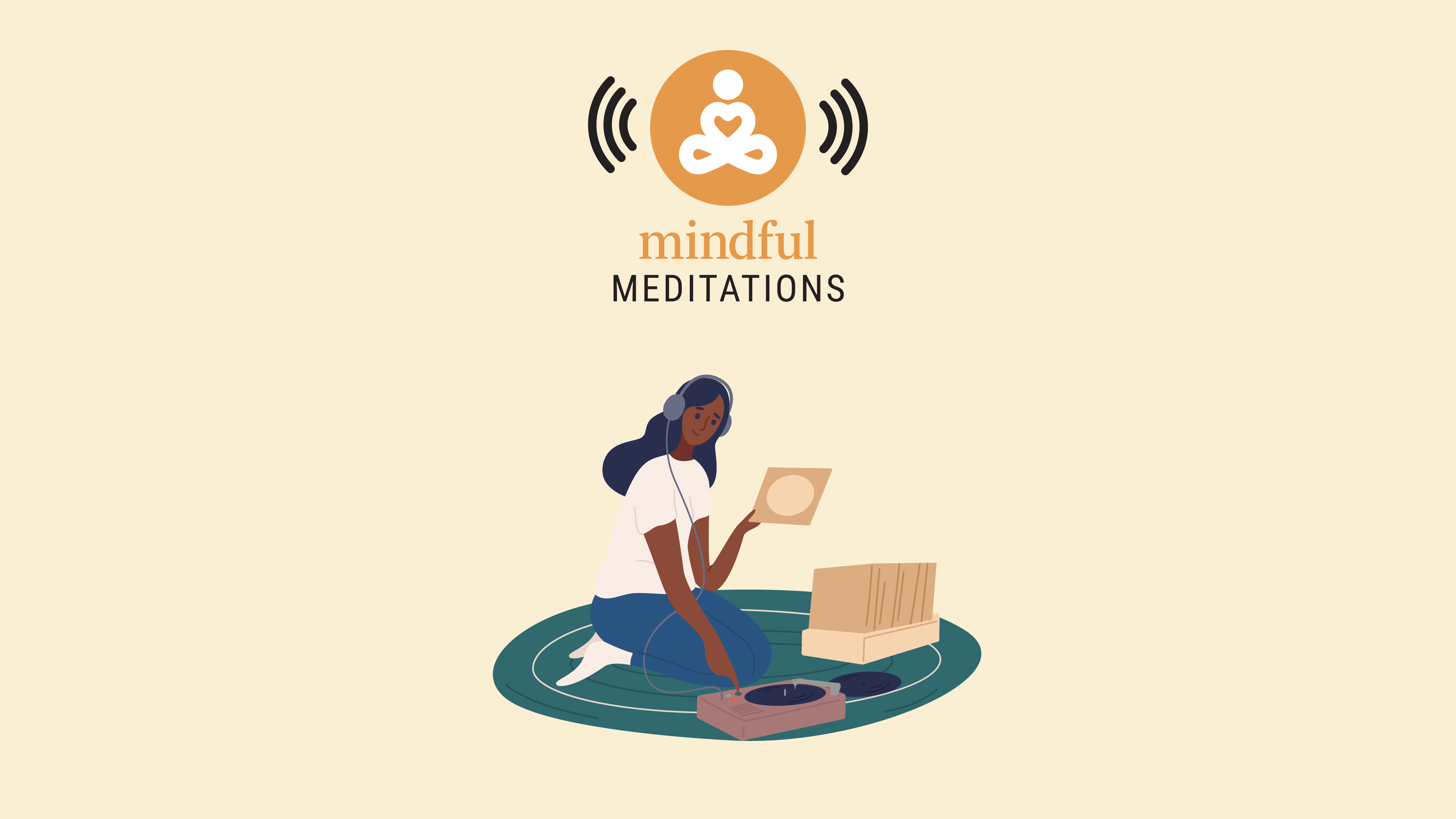Loving-kindness is so much more than “just” a feel-good practice. It is the force that can connect, inspire, and motivate us to transform the world. Here world-renowned mindfulness teacher, Sharon Salzberg, one of the foremost teachers of loving-kindness, helps to pave the way.
Barry Boyce: You’ve been practicing mindfulness for quite some time and I’ve heard you talk about how meditation and kindness are inseparably linked. Can you explain?
Sharon Salzberg: Let me start with a little background. Nowadays, if you want to practice meditation, there are meditation centers and studios all over the place. Or you could take a course. You can go on online and find 50 or 100 books on meditation.
When I started, in the early ’70s, lots of us went to Asia. I chose India.
When I traveled there as an 18-year-old to meet great meditation teachers, I felt like I knew a lot. I had read plenty of Eastern philosophy and was pretty sure I had gained a good understanding. I was in for a bit of a surprise. The first thing I was taught when I went on my first meditation retreat was to pay attention to my breath.
“What,” I thought, “this is it? Pay attention to my breath? I could have done that back in Buffalo.” In Buffalo, I could even see my breath on many days. I figured I would be able to follow many breaths, maybe hundreds at a sitting. Why not? What’s the big deal?
I soon came to find out that it was not so easy as that.
In fact, I had a lot of trouble paying attention to even one breath without my mind going off into many, many thoughts. I found myself having thoughts like why there are roundabouts on highways. Who came up with that idea? What? Why am I having such thoughts at all? I’m not a traffic engineer. It was pretty humbling to see just how hard it was to simply pay attention, and how the thoughts came tumbling down like a waterfall.
That’s where kindness needed to kick in.
I quickly discovered that if I was going to keep going with meditation, I would need to go much easier on myself. I would need to accept the inevitability of these thoughts and have some faith that my attention could indeed find its way back.
Barry Boyce: When people don’t have faith that their attention will find its way back, do you find that they will think they simply can’t meditate?
Sharon Salzberg: Oh yes. The experience of being overwhelmed by thoughts is hardly unique to me. Anyone who begins meditating will find this very thing happening to them. Feeling inadequate. So many thoughts! So little attention on the breath. I cannot meditate. Other people can do it. I cannot. And this kind of thought loop may happen again and again, and each time we can be kind to ourselves about being human beings who have thoughts.
Sometimes when people are introduced to mindfulness meditation, they come to think of it as a dry, technical exercise, a kind of hard work or mental struggle. In fact, for meditation to take hold, early on, we need some warmth and kindness toward ourselves.
It’s not a dry exercise at all. It’s learning how to be with ourselves, and when we are with ourselves in this very simple way, the attention and the kindness go together, hand in hand. Some self-compassion must arise if we are to keep going.
Barry Boyce: What else is essential to keep going?
Sharon Salzberg: Frequently in instructing meditation, we say “rest” your attention on the breath. It’s a quality of resting and settling right from the start, a gentle act, not a labored struggle. And as a result of the practice, we develop increased concentration, yes. That is a key factor.
But we also develop greater awareness of what’s going on with ourselves, what’s happening with our emotions, and when we see a thought, we don’t push it away. We notice it. We see it for what it is. That’s how we begin to get to know ourselves better, and by extension experience what’s happening with others more. We feel our connection to them more. Paying attention is one of the kindest things we can do—for ourselves, for others.
Barry Boyce: How is it possible to rest, to develop awareness and concentration, in the midst of turmoil and anxiety?
Sharon Salzberg: With coronavirus circling the globe; schoolchildren, churchgoers, protesters, and concertgoers being shot in public; immigrant children separated from their parents; signs of resurgent racism appearing; and a deep political divide taking hold in so many places, many people these days feel deeply anxious, and despairing in fact.
These are indeed tough times, but we don’t need to feel powerless. It’s an illusion to think that we are without any agency in our lives, any ability to act. It’s also illusory to think that we can control events that are, at present, beyond our control.
These are indeed tough times, but we don’t need to feel powerless. It’s an illusion to think that we are without any agency in our lives, any ability to act.
We clearly don’t have control over everything, but there are things we can do. It’s always been that way. That hasn’t changed. It is not our universe to control. Knowing and acknowledging that is a key aspect of developing wisdom.
When we know that in our hearts—and stop berating ourselves for not being able to fix everything—we can go forward in a balanced way. We’re not indifferent to the needs and challenges surrounding us, the pain others are going through. But rather than trying to simply fit into others’ expectations of what we ought to do in response, we can pay attention and look and listen for opportunities to help that accord with our capabilities and circumstances. We can respond to what calls out to us when we allow ourselves to be open.
Barry Boyce: You’re suggesting that we use mindfulness to lead us to what practical steps we can take to seek change?
Sharon Salzberg: Yes, I am, and in addition to practical steps like volunteering, donating, voting, and connecting with others, there is also something very significant we can do, starting in our own hearts. We can gradually learn to be present with the pain, anxiety, fear, and vulnerability we feel, rather than push those feelings away.
When we feel pain and yet we can go on, that’s how we build resilience.
Mindfulness practice doesn’t stop at relaxation and concentration. The relaxation and concentration allow us to stay with the feelings that emerge, no matter what is going on in life. It also allows us to savor the moments of joy in life, rather than overlook them because of all the dark clouds.
We hear a lot these days about separation, isolation, and loneliness. The British have even instituted a Minister for Loneliness. Some of this isolation seems to come from how our devices and our ways of working can wall us off from others, and some of it undoubtedly comes from the fact that when we’re anxious and afraid, we may retreat from community with other people. If we think that others are so different from us, we may hesitate to engage with them.
We are all interconnected. This is the truth of how things are. When we separate ourselves off, we are fighting that reality.
We are all interconnected. This is the truth of how things are. When we separate ourselves off, we are fighting that reality, including if we decide to hate someone because of their views.
We never need to hate, but we can be very clear about something that is wrong, that represents a wrong view, that demonstrates gross ignorance and aggression. We need to work against ignorance and wrong views, and yes, hate, without falling into it ourselves.
Barry Boyce: What about when that ignorance and aggression we are subjected to make us lose our temper?
Sharon Salzberg: Wrong views and actions may naturally cause us to get pretty angry. Anger can clearly be a state that causes us great distress and that can cloud our minds and cause harm when we act based on it. It’s a poison that can consume us. I’m very interested, though, in anger as the precipitating event for bringing about change, which it definitely can be. Sometimes it’s the angry person in the room who points out the thing others wish to ignore.
How do we keep the part of anger, the spark, that has intelligence, without getting caught up in the destructive part? That’s a valuable inquiry to take up, to contemplate, as part of mindfulness practice.
With mindfulness, we can develop the ability to experience the full dimension of thoughts as they arise. We don’t need to act on every thought that comes up. We can see it, but not act on it. The way forward may emerge from allowing that little bit of a gap between thought and action, especially with anger.
Barry Boyce: Meditation can help us see that gap more often, but it sure seems hard sometimes.
Sharon Salzberg: Often people will say to me, “Oh, I know meditation can be really valuable, but I just can’t do it, but my partner sure could use some!”
It’s very common for us to think we can’t meditate.
A big part of that comes from trying really hard to have a particular kind of experience. Perhaps we think that the sign that meditation is working is having a major transformational experience, so we struggle really hard to obtain that, and meditation ends up being just that: a big struggle. We miss the part about resting our attention. We’ve become too focused on ourselves and our big meditation experience, rather than letting ourselves simply be there.
I’m reminded of what one teacher said after observing a lot of us: “You are rowing and rowing and rowing, but you’re not untying the boat from the shore.” When we’re trying so hard, and so focused on us and our meditation achievement, we often overlook what’s right in front of us: the need to be kind to ourselves and to those around us.
When we’re trying to develop a regular practice for ourselves, something integrated into our regular life, having friends to help us along, a community of fellow travelers, is a great support. It’s heartening to know that you are not the only one who may have sat through a whole meditation session and noticed maybe one breath. You can laugh at yourself, along with others.
Barry Boyce: What makes it possible to laugh at ourselves?
Sharon Salzberg: It comes back to this thing we call loving-kindness that I’ve written a book about and taught about so often. Unfortunately, it’s a bit of an odd term, because it sounds kind of arcane or removed from day-to-day life. If you go to a café for a cup of tea, you’re not likely to hear the conversation at the next table being about loving-kindness, unless maybe the café is down the street from the Mindful offices!
My concern is that an unusual term like this might make the quality itself seem somewhat removed from day-to-day life. It might seem precious, in the negative sense of the word, gooey and soft, without strength or wisdom. Just a mush ball.
Nonetheless, some people have suggested we just call it “love” and be done with it, but love is a complicated term. It can mean something very superficial, like “I love vanilla yogurt,” or it can be a medium of exchange, like “I will love you, so long as the following fifteen conditions are met.” That’s not quite it.
The Pali term for loving-kindness, metta, translates simply as friendship, but that to me can merely connote companionship, doing things together, going to the movies, going out to eat, or just hanging out via Zoom in this new world of social distancing. The word that I think gets to the essence of it perhaps the most is connection. When I refer to cultivating loving-kindness, I’m talking about a bone-deep sense of connection.
Barry Boyce: What are we connecting to?
Sharon Salzberg: First off, we’re connecting to ourselves, not floating off in the ether somewhere, but being right here, experiencing our whole heart and mind. Then, we’re connecting to one another, which is not the same as liking somebody. It is rather knowing deeply that our lives have something to do with another, that the constructs of self and other, us and them, are useful constructs but they are just constructs.
At a certain intimate level of reality, it is all about “we.” That’s just how it is. We are all in this together.
I was driving with a friend and we were caught in this terrible, hideous traffic, complaining about it bitterly the whole while. And then at one point my friend said, “You know, we’re the traffic, too.”
And all of a sudden I realized, oh! There it is. It’s that sense of privilege, of centrality, that we cling to. These are my roads and these people are in my way and where are they going anyway on my Saturday?
Go away!
What happens when that sense of it all revolving around us drops away for a bit? We might realize these other folks in the traffic jam are saying the same thing about us. We’re all the traffic.
Think of all the times we’ve figured out who’s in the center and who’s at the margin and let that shape our worldview. What happens when that worldview loosens up, when that sense of centrality falls away, and it’s just us? That’s love, and it’s not weak and mushy. It’s just true.
read more
A Simple Meditation to Connect With Loving-Kindness, from Sharon Salzberg
This classic loving-kindness meditation can help you to awaken to how connected we all are. You don’t have to like everybody, or agree with everything they do—but you can open up to the possibility of caring for them, because our lives are inextricably linked.
Read More
Sharon Salzberg Reveals Why Our Interconnectedness Is Our Greatest Strength
In her forthcoming book, Real Change, Sharon Salzberg explores how nourishing our essential goodness and compassion empowers us to be forces of change that both soften and strengthen us.
Read More
Offering Loving-Kindness to Yourself
In order to be giving, we need to be nourished. This practice is about learning to check in with yourself and to do so with love.
Read More








